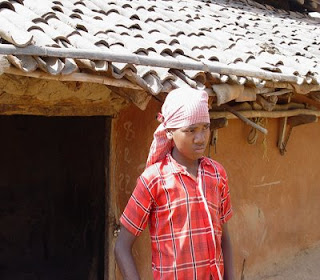Aamir Khan has probably never heard of Prashant Rahi. But on the day his maiden directorial venture Taare Zameen Par was released to critical acclaim, a young assistant director of his production team lay huddled, crying silently in one corner of a Mumbai apartment. Like the rest of the production crew, Shikha was very excited that the film for which she had worked really hard for months had finally hit the cinema halls. Her friends and relatives had begun to call since morning, and, in the late afternoon when her mobile phone rang again, she took it for yet another congratulatory call. But that phone call changed everything. It was a phone call from the police station.

In the newly-built state prison of Uttarakhand, on the outskirts of the capital Dehradun, a line from Iqbal’s immortal Saare jahan se accha Hindostan humara, written on a wall in front of the jail superintendent’s office reads, Hum bulbule hein iski (We are its bubbles) instead of Hum bulbulen hein iski (We are its bulbuls).
“So you have come to meet Prashant Rahi?” asks the young deputy jailer, and then instructs his junior, “Photo khincho inki (Get his picture clicked.) Anyone who comes to meet Rahi has to get his picture clicked first. A young man, perhaps a prisoner on duty, does that job, with a camera attached to a computer. He also then takes a printout of that picture.
In the visitor’s hall, 49-year-old Prashant Rahi receives his visitors with a warm smile. “Imagine, the policemen who claimed to have recovered a laptop from me did not even know how to operate that; they actually sought my help in getting it started,” Rahi tells this laughingly to anyone who cares to listen.
The Uttarakhand police claim to have arrested Rahi three months ago on December 22, from a forest area near the state’s border with Nepal, which they say was a temporary base of the Maoists. He is charged of being the zonal commander of the CPI (Maoist). Apart from the laptop which Rahi mentioned, he claims that some Maoist literature, which included books on Mao and a few pages of a magazine, taken out by the CPI (Maoist), was recovered from him. But senior police official refute that claim. “We also recovered a complete blueprint of the Naxalite movement in Uttarakhand which was commissioned to him by the top Naxal leadership,” says a senior police officer, who supervised Rahi’s arrest. The officer says that in the blueprint Rahi has written clearly that earlier he was a member of the People’s War Group, which merged with another Naxalite group to form the CPI (Maoist).

Rahi, a former journalist with The Statesman, says he was picked up from Dehradun itself on the afternoon of December 17, while walking on a road. “I was immediately blindfolded. The policemen in plain clothes said I was someone called Ram Singh who had robbed a businessman in Bijnor,” he says. It was only after senior police officials came to interrogate him, he says, he realised that he was being charged of being a Naxal leader.
Rahi is a very well-known face in the intellectual circles of Dehradun. He is believed to have translated a number of literary classics into Hindi. His friends say he was also very active during Uttarakhand’s movement for a separate statehood. He had also been trying to organise landless labourers against landlords.
“Let’s put it this way: Rahi always felt the urgency of doing something for the voiceless more than we do,” says Ashok P. Misra, a senior journalist and a former colleague of Prashant Rahi. “But to think that he was an active Naxalite commander is too far-fetched; I have a problem with the way the state has dealt with it,” he adds. Another former colleague and senior journalist, Rajiv Lochan Shah said that the state was trying to exaggerate the Maoist threat by arresting people like Rahi. “After the PM’s statement that the Naxalites posed the maximum threat to the country’s security, it seems that the Uttarakhand government wants to bite deep into the cake of Central funds allotted for fighting Naxals,” he said.
“If Rahi was indeed a Naxalite commander how come not even a tamancha (country-made pistol) was not recovered from him?” Shah asked. “The fact that we didn’t plant any arms proves that our recoveries are perfectly legal. Let Rahi’s fate be decided by the judiciary,” Inspector-General (Law and Order), Uttarakhand Police, M.A. Ganapathy said.
Rahi alleges that he was tortured brutally while in captivity. “At one point they said they will bring my daughter and force me to rape her,” he alleges. He says he was even forced to sign his confessional statement. “When I wrote ‘signed under duress’ they did not understand what that meant,” he says.
The police has filed a charge sheet against Rahi and, as per his lawyer, the chances of his release on bail in near future are almost nil. “There are lessons to be learnt from Jharkhand and Chhattisgarh,” says the SSP of the state’s Special Task Force, Abhinav Kumar, “It doesn’t make sense to wait for anything big to happen and then act.”
Meanwhile, the battle has just begun for Shikha. A letter written to her by her father on the International Women’s Day is clutched hard against her chest (“He asked me to be strong”). Away from the pseudo–activism practiced by the glitterati of Bollywood, she is hoping that her father is freed soon. “There is a strange rule in the jail manual – I cannot send sweets for my father which he likes very much,” she regrets.









